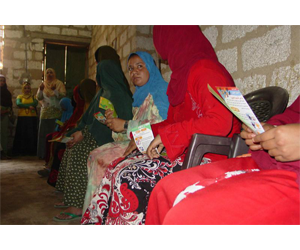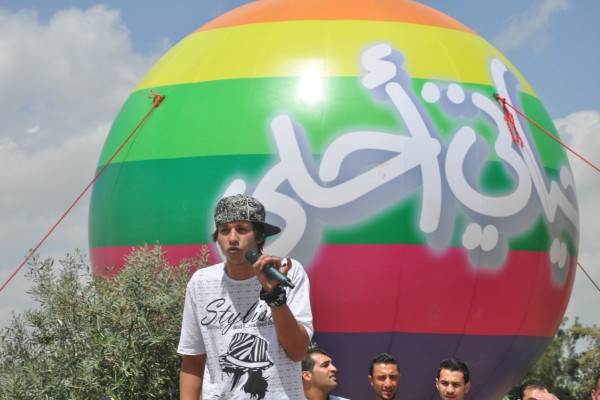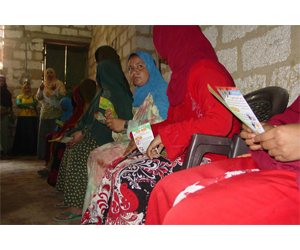At the age of eighteen, Intisar found herself forced into marriage by her father, a practice that is against religious and civil law in Jordan, though still not uncommon. Seeing no alternative, Intisar agreed be married and hoped that the husband her father had chosen, Imad, would be a good man with whom she could share her life and raise a family.
Unfortunately, Imad turned out to be an abusive man. “He would scream and shout for no reason,” describes Intisar. “He denied me the right to go out of the house. I couldn’t visit my parents or friends. I felt like I was his slave.”
To fulfill her “duties,” Intisar started having children. Within a few years she gave birth to four children, three boys and a girl.
Divorce was not an option, so Intisar sought other ways to manage her situation. Providing for four children placed a tremendous financial burden on the young couple, so she persuaded her husband to allow her to obtain birth control from the family planning clinic. At the clinic, she discovered women’s empowerment workshops, including “Arab Women Speak Out” (AWSO).
The AWSO program, part of the USAID-funded Jordan Health Communication Partnership (JHCP), inspires women’s empowerment through innovative community training sessions. The workshops conceive of a new role for women like Intisar in society. They are being conducted in six Arab countries – Egypt, Jordan, Lebanon, Tunisia, Yemen and Palestine – and have also been successfully adapted in many African countries. They encourage increased demand for women’s rights and the development of local initiatives that give women more choices.
Insitar pleaded with her husband to attend AWSO, but he refused. Refusing to give up, Insitar reminded Imad how much their family life had improved since she began using contraceptives. She argued persuasively that these workshops too could open doors for her, and the family. Imad finally agreed and Intisar attended her first workshop in early 2010.
Using documentary video profiles of women who have taken control of their lives, AWSO provides women with role models, information, resources and strategies they can use to achieve personal and professional goals. Instructors also discuss the value of spousal communication and the importance of spending time with a partner.
After watching the video success stories, Insitar was inspired to make changes in her own home. She suggested to her husband that they take a short walk together every day. Imad agreed, and their daily walk became a therapeutic time during which they discussed matters, both large and small, and made decisions together as a couple. “We still do this till today,” says Intisar. This small routine changed her life.
Intisar discovered more workshops, including one that addressed anger management. As she took more courses, she developed ways to manage her husband’s behavior. Imad noticed that the changes in his wife and, much to his surprise, also in himself. He became calmer and more open to discussion.
With newfound confidence, Intisar’s next goal was to convince her husband that it would be advantageous if she contributed to their household income. Remembering an advertisement she saw at the family planning clinic seeking trained instructors to consult women on AIDS prevention, Intisar applied and became a qualified instructor. She enjoys giving women the information they need to be able to make informed choices and take action.
Over time, Intisar began to participate in many activities that had previously been denied to her. Today, she is able to make weekly visits to her parents in Al-Nuzha. She frequently discusses her experiences with her friends and relatives.
Intisar firmly believes that her daughter should be granted the same educational opportunities as her three sons. Her young daughter wants to be a schoolteacher and Intisar is determined to give her everything she needs to achieve this goal. As a model to her daughter, her friends and all the women in her life, Intisar is inspirational. She says that she has learned that before you can change anyone around you, you need to first change yourself.
In late 2010, the Jordan Health Communication Partnership (JHCP), a project led by the Johns Hopkins Bloomberg School of Public Health Center for Communication Programs (JHU∙CCP) and funded by USAID, updated the AWSO manual to include Intisar as a case study.
Intisar now serves as a role model not only to her friends and family, but to all women across Jordan.




